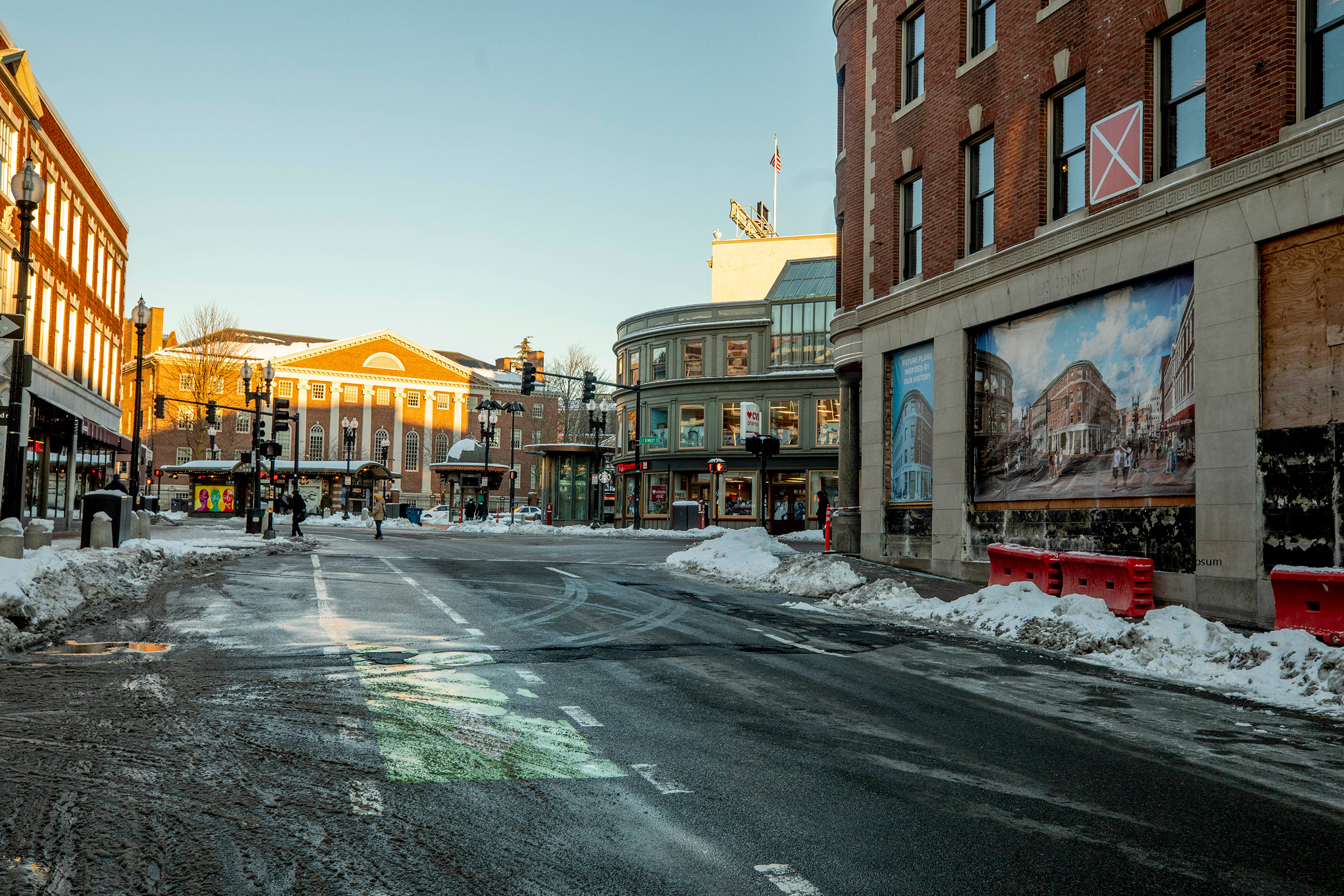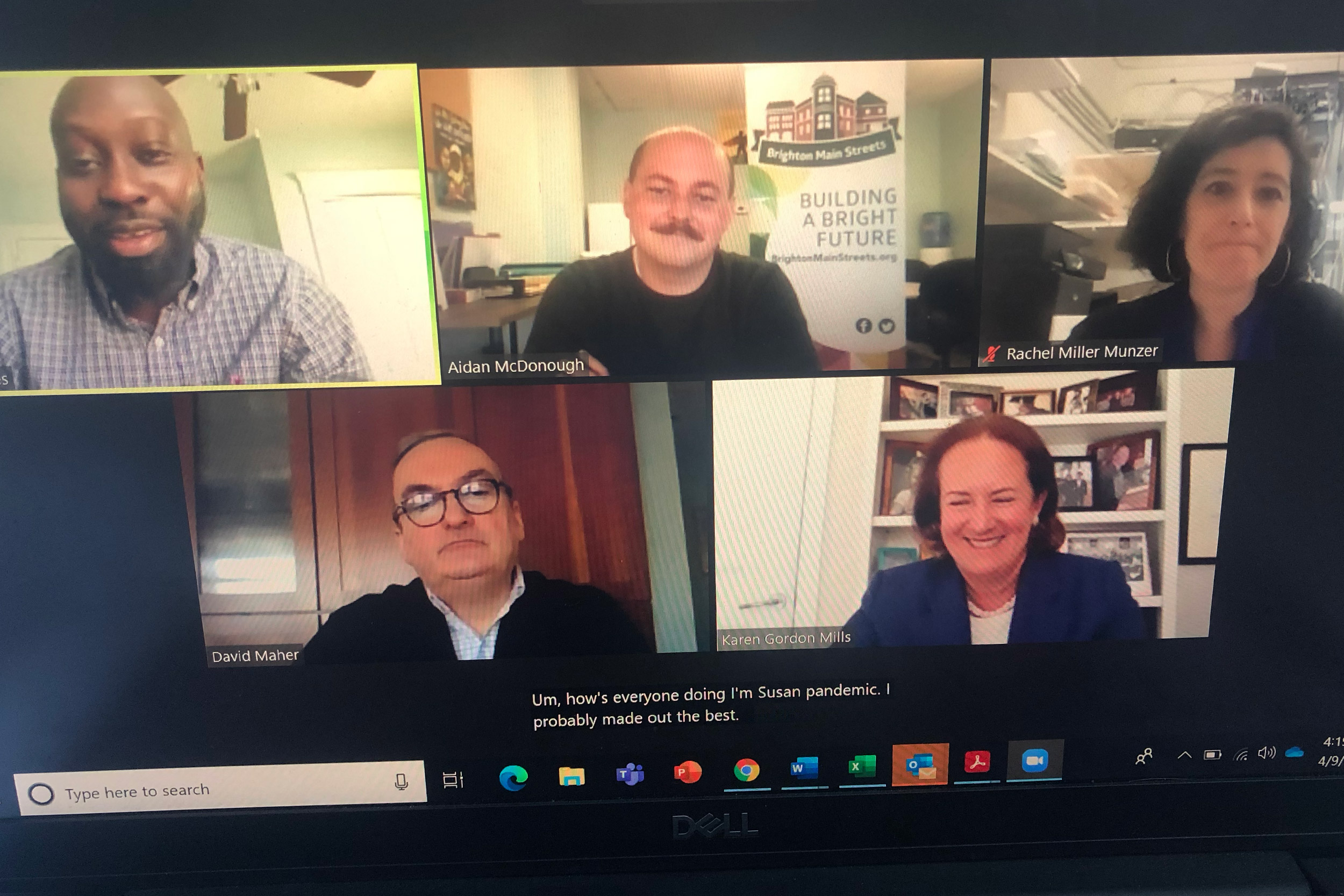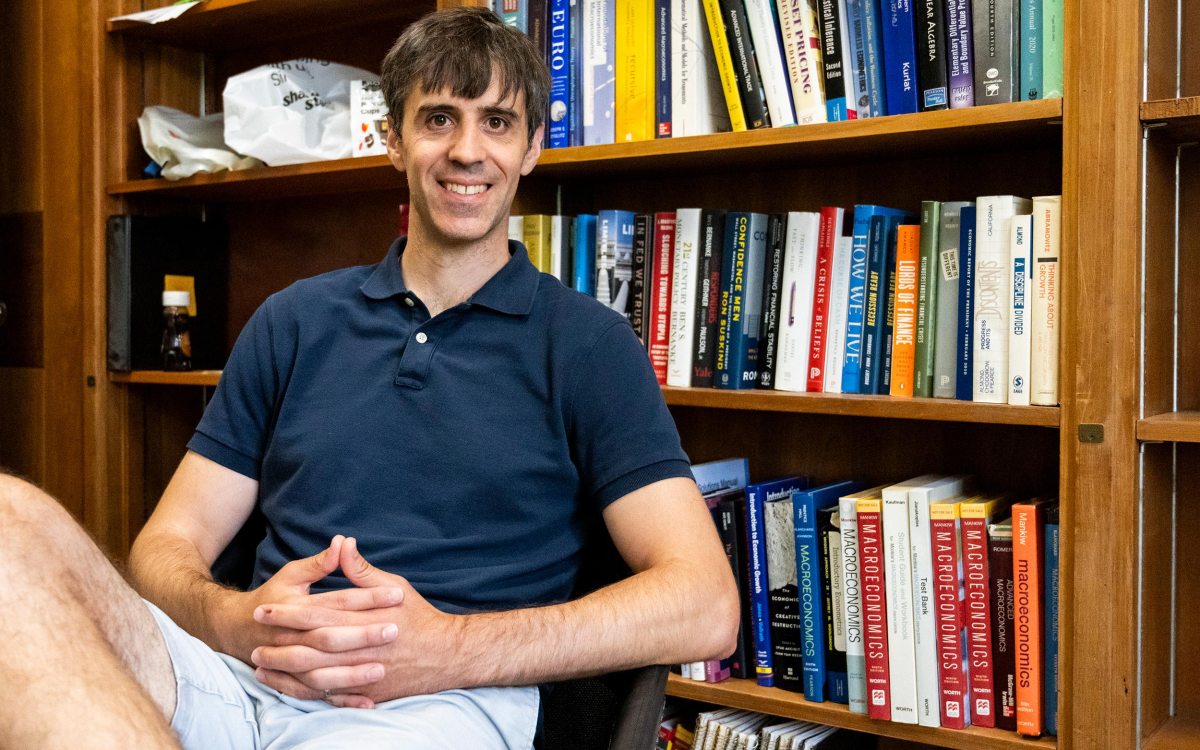
Rose Lincoln/Harvard Staff Photographer
Local small business roundtable sees reasons for hope
Harvard panel says time is ripe for a renewed push for equity
In March of last year, as COVID-19 brought the world to its knees, small businesses across the nation struggled to make ends meet and stay afloat. Everywhere, including in the Greater Boston area, many had no choice but to shutter. Others dug deep, got creative and managed to survive. One harrowing year on, there are signs of resilience and triumph, and many small business owners are taking the opportunity to figure out how to forge a meaningful and successful path forward.
Earlier this month, a Harvard panel moderated by Karen Gordon Mills ’75, the former administrator of the U.S. Small Business Administration, examined the strategies used by some local small business owners over the past year and considered ways in which small businesses can turn the corner, and even thrive.
“Small businesses are critical to this whole country,” said Mills, who is currently a senior fellow at Harvard Business School, and on the board of the Harvard Allston Land Company (HALC). “Half of the people who work in this country own or work for a small business. So that’s half of America’s jobs. And it has been a challenging time. I think it is the most challenging time for small businesses that I’ve seen in my lifetime.”
“Our small businesses have been weathering a storm … really a tsunami of hurt,” said Massachusetts Congresswoman Ayanna Pressley, who joined the panel to give introductory remarks. “They have been devastated and we know that for every business that is shuttered, a worker laid off, the ripple effects destabilize our families and our communities.”
Pressley and Mills said the resilience small business owners have shown already gives them hope for what lies ahead. But, they noted, there’s more work to be done for an equitable recovery for all small businesses.
“This is the opportunity and the time for reconstruction. That we chart a brighter path forward. One that is more just and more equitable. One that centers on the dignity of every member of our community,” said Pressley.
Joseph Charles, owner of Rock City Pizza in Allston; David Maher, president of the Cambridge Chamber of Commerce; Aidan McDonough, executive director of Brighton Main Streets; and Rachel Miller Munzer, co-founder of Big Dipper Hospitality (State Park, Mamaleh’s, Café du Pays/Vincent’s Corner Grocery), all joined the panel to share what they’ve learned in the past year, and what they hope for the months ahead.
The Cambridge Chamber of Commerce was able to “raise a lot of money from large businesses, to help their small business neighbors,” said Maher. “The (Cambridge) Mayor’s Disaster Relief Fund raised $5 million, and about 85 percent of that money came from businesses, not individuals. It allowed for $5,000 and $10,000 grants to be made to many small businesses, of which about three-quarters of them were businesses led by women or people of color. It was a response from the city and the community to help us be able to answer the pleas for help.”
McDonough shared a similar story. “We immediately created a workers’ relief fund through a private partnership with Charlesview Inc., Harvard University’s COVID emergency grant program, and Boston College’s COVID emergency grant program,” he said. Because of those, “We were able to provide at least some cash flow to some of these workers who had everything just shut down completely.”

Many of the panelists said they hope to take some of the adaptations made in the last year and make them more permanent.
“In the restaurant industry there is a need for what some people call a reckoning, or a real change in the way that restaurants operate. And we’re really embracing that change right now, trying to work toward better wages, and more equity in between the front and the back of the house,” said Miller Munzer. “We’re sharing tips on some of these core negatives issues that have been growing for years in the restaurant industry. This is really allowing restaurants in general to just sort of split it open.”
“When you’re starting up a small business, it can be overwhelming trying to maneuver and jump through so many hoops,” said Maher. “Throughout the pandemic, one thing that I’ve seen is a much more coordinated concierge-type delivery and that’s something that I’m hoping we can see in future. So many small businesses are immigrant-owned, folks who are starting and putting their life savings into this. [Wouldn’t it be a wonderful] thing if the community could hold their hands as they go through the process to help them make their business a success?”
Despite the hardships, the juggling, and the worry, all four panelists said they believe the future may be brighter. Asked what they’d like to see in a post-pandemic world, they said more empathy and compassion, as well as programs and initiatives that address systemic issues such as inequity.
“I think this pandemic has made us think more,” said Charles. “Not only to get creative, but our approach to helping one another has changed drastically … Whatever it takes to take care of the community. I once read, ‘If you take care of the community, the community will take care of you.’ I think this pandemic has forced us to think of our neighbor.”
“I think there is a tremendous amount of effort being made. We’ve gotten PPP loans, and other loans. We’ve done a lot and taken advantage over the past year of everything that’s been made available to us. And I feel fortunate that we have received all of this,” said Miller Munzer. “But it’s been challenging for me, who has English as my first language. In my heart, I feel that there are so many people who are probably left behind in this process. People who just aren’t getting access to this information because nobody is there knocking on their door, speaking to them directly in their language, or in a way that they can understand. …
“I often worry about the people left behind. I wish there more support and more organization to help with these efforts.”
Gordon Mills agreed, saying support is critical to ensuring small businesses can work and succeed for all. “In the world of small business, you really have to help these businesses, sometimes one at a time. Each one is unique. Each one has its own challenges,” she said. “Helping a small business really reminds you about what’s important here in this country. We have to make sure that access to the American dream is there for everybody.”




